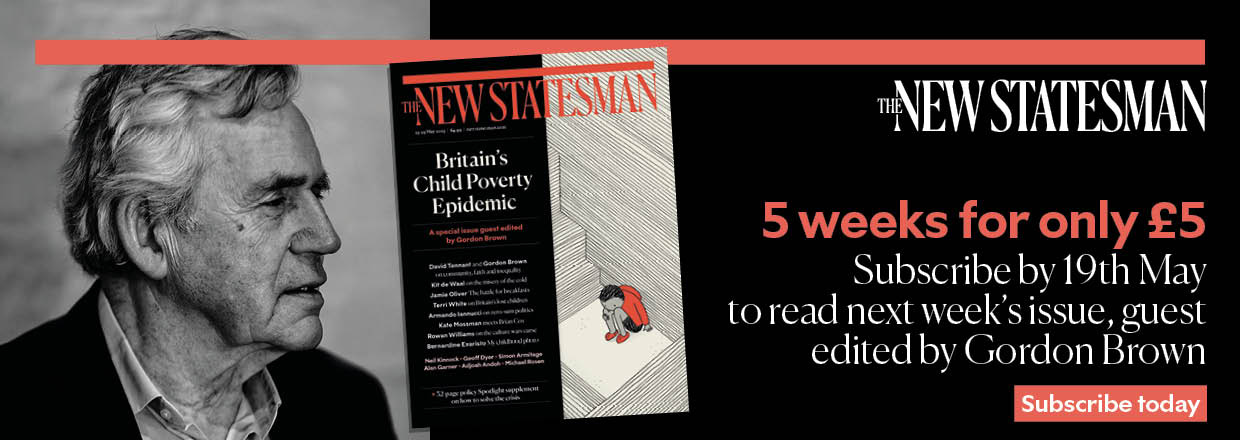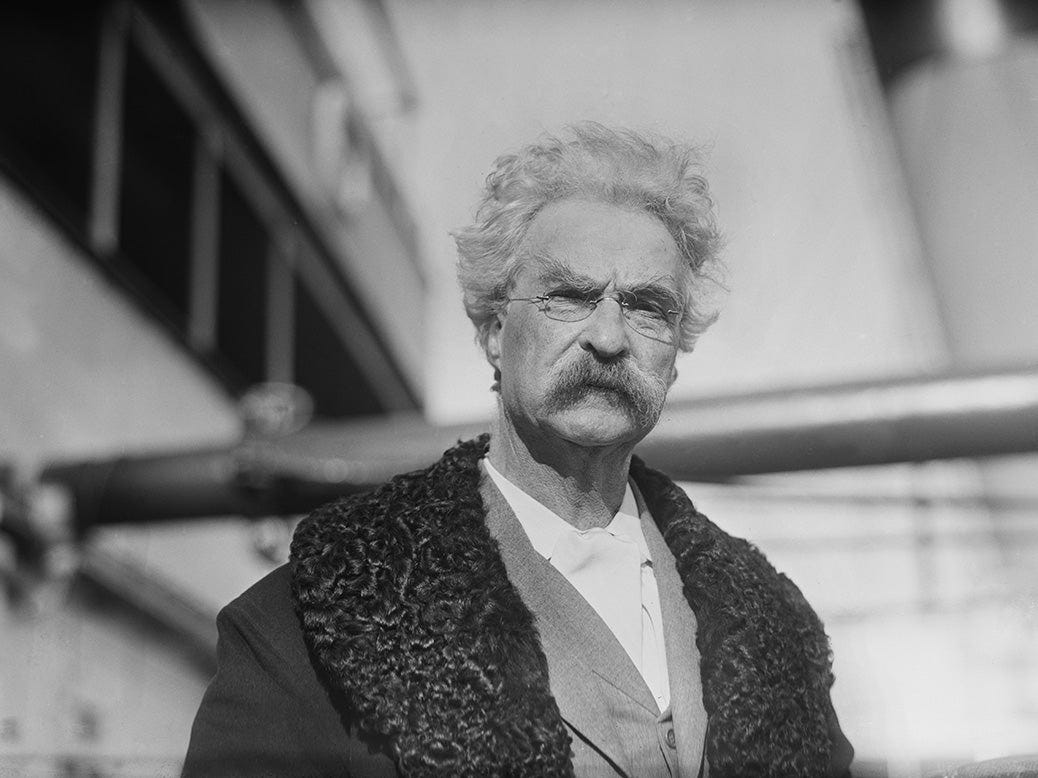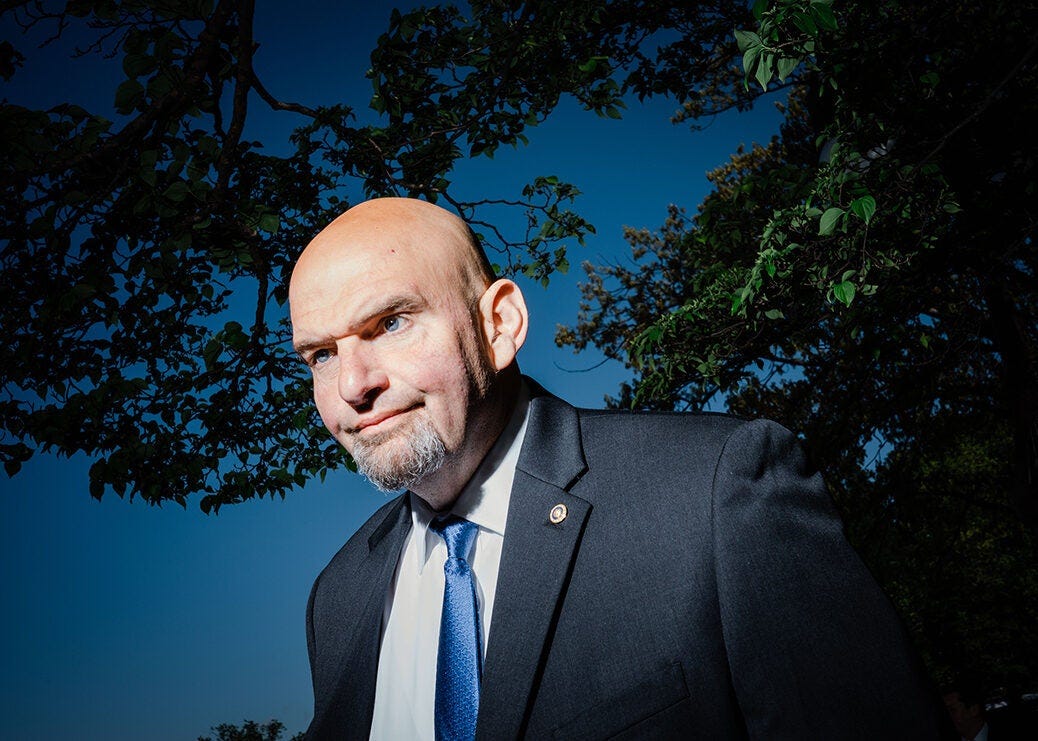The Saturday Read: EU state of mind
Inside: The shadow of George Osborne, Mark Twain, the Joe Biden cover-up, Mission: Impossible, Pep Guardiola humbled and an exclusive interview with Gordon Brown.
Good morning. Welcome to the Saturday Read, the best of the New Statesman, in print and online this week. This is Finn with Nicholas and George.
Expect this week to be dominated by Europe (2019 throwback!). On Monday the first serious UK-EU summit since the Brexit years will be held in London. Ever since Labour were elected last summer there has been talk of the party looking for a “reset” in this thorny relationship, or in the preferred parlance of Keir Starmer’s team, a “new partnership”.
The Conservatives and Reform will accuse No 10 of trying to re-join the EU by stealth, they will cry betrayal and stamp their feet. But, as Andrew Marr writes this week, Starmer is alive to this inevitability. Trump’s retreat from Europe and the looming presence of Putin have handed him the political logic to push ahead anyway, to sell this closer partnership as an essential act of statecraft aimed at shoring up the security of Britain and the continent. It will be a fight, but – as Andrew says – one that Starmer can win.
As ever, thanks for reading and have a great weekend.
1—“Austerity doctrine”
Every time Rachel Reeves mentions fiscal rules and OBR forecasts, she is dancing to George Osborne’s tune. In our cover story this week, Will Dunn shows how the politics of austerity became the ideology of the British economy on left and right. NH
Since October 1629, the heraldic motto of the Osborne baronets has been “Pax in bello”. It was chosen by Sir Richard Osborne, the family’s first successful politician, but it suggests a temperament that seems to fit his modern ancestor: untroubled, at peace when others are at war. The glib, detached approach to running the economy is arguably the most significant part of Osborne’s legacy.
2—“Women are left traumatised”
Hot off being shortlisted for the Orwell Prize for Journalism – congratulations Hannah – she writes on a new book that details the failure of Britain’s maternity services. Simply, it is not safe to give birth in England. GM
While giving birth has clearly changed Clarke forever, she has been left bruised and bitterly disappointed by her experience in parliament, too. “I felt that no one looked after us as people and we were seen only as politicians to be mocked and abused,” she says. Clarke reveals she had a panic button fitted in her home because of harassment, and that during maternity leave she received “abuse in person, on the telephone and via [her] staff”. The House of Commons, she argues, “is not a modern workplace that is compatible with raising a young family”.
3—“It girl”
In the winter I chauffeured Megan Kenyon to a then-closed stately home, Waddeson Manor, in my mother’s banged-up white Polo. We were off to look at a painting of Megan’s great-great-great-great-great-grandmother by Joshua Reynolds. That winter project has borne summer fruit now, as we learn of the ancestor’s party spirit. GM
Reynolds’ painting marked a significant moment in Joanna’s life: she was preparing for marriage and her departure from England. I like to imagine that he was moved by this coming-of-age moment. He chose to paint Joanna in an enclosed, lush woodland; a gentle brook runs past her, and warm sunlight peeks into the glade behind her. The setting is inarguably English. Her pose, inscribing her married name into a tree, is a facsimile of a well-known moment in Shakespeare’s As You Like It, in which Orlando etches the name of his beloved Rosalind on to trunks in the Forest of Arden. Reynolds depicts Joanna carving her new name into the natural fabric of England, as if she is asking it not to forget her.
4—“Accusatory, indignant, righteous – and convincing”
Joe Biden’s cognitive decline was obvious. So why did it take so long for the party to do anything about it? Freddie writes a brilliant review of Original Sin – a book that chronicles Biden’s senility, and contends that behind the scenes it was even worse than we could have possibly imagined. FMcR
We now know Biden was senile during his presidency. He would fail to recognise decades-old acquaintances, or freeze with his mouth agape. His annual exam suspiciously did not include a cognitive test. Aides gave him black Hoka trainers to straighten his gait and began walking beside him to his helicopter in order to literally catch him if he tripped. Congressional Democrats left meetings with him thinking of their parents with dementia. Around Thanksgiving, Biden was handed cue-cards in case he was asked what he was thankful for. His team debated pushing him around in a wheelchair and laid down fluorescent tape to guide him through parties with few people. Like puppeteers, they used contraptions to bring him to life.
5—“The greatest and simplest mystery”
Erica Wagner has read a tome on the American master of narrative, Mark Twain. But she is left unimpressed, and musing on the counterintuitive problem of biography that is too closely focussed on its subject. FMcR
Strange to read a biography of Mark Twain – that most vibrantly entertaining of writers and personalities – and feel a little weary of him by page 900 or so. At the end of his life, his (apparently non-sexual) obsession with very young girls springs disturbingly to the fore: he called them his “angelfish”, and once they turned 16, he lost interest and dropped them (there really was a “school” of angelfish) with stunning abruptness. Chernow doesn’t excuse Twain but notes that his subject’s apparent thirst for a kind of pure, uncorrupted adoration was bottomless. Despite his love for his wife, he never recovered from his boyhood crushes; and, as Chernow notes, his greatest works are marked by a distinct lack of rounded, adult female characters.
To enjoy our latest analysis of politics, news and events, in addition to world-class literary and cultural reviews, click here to subscribe to the New Statesman. You'll enjoy all of the New Statesman's online content, ad-free podcasts and invitations to NS events.
Resistance, hospitalisation, and looking at raisins: Listen to John Robins and Alastair Campbell discuss depression and mental illness on the How Do You Cope podcast. Follow How Do You Cope wherever you get your podcasts, or listen early and ad-free on Wondery+. Listen here.
6—“The only possible saviour of all humanity”
Amid a week of European reset chatter and serious speeches about immigration, we cannot forget that life is supposed to be fun! And so, David Sexton reviews the latest in the Mission: Impossible franchise. It doesn’t sound very good, but isn’t that the point? I’ll be watching. FMcR
He gets his kit off as much as ever, too. Ethan has a nasty knife-fight wearing just his pants, and then, in the sunken sub, boldly strips down to his trunks to squeeze through a torpedo tube. Cruise may be in spiffy shape for his age: quite the reassurance for fellow boomers. But can cinema-goers 40 or more years younger sincerely relish so senior a torso? For how long? Cruise has said that he doesn’t see why he should not go on as long as Harrison Ford (82). He may.
7—“Ruptured mentality”
John Fetterman is not a household name in Britain, but in America he’s a national crisis, a Democratic Senator facing mounting allegations of mental instability who refuses to stand aside. For Lee Siegel, he’s a symptom of a cynical political class, one increasingly motivated more by self-preservation than service. NH
Fetterman seems to be, by every rational measure, unstable. But in a mad time, irrationality is difficult to define. The Trump administration claims the tattoos of Kilmar Abrego Garcia, the El Salvadoran national it illegally deported to an El Salvadoran prison, prove his membership in the criminal Salvadoran-American gang MS-13. But the photos Trump posted on Truth Social to demonstrate his claim were clearly altered – yet only in the eyes of the Democratic opposition.
8—“Things fall apart”
Pep Guardiola is football’s Picasso – innovative, influential, bald, Spanish – writes Clive Martin. But this season we’ve seen his greatest ever slip-up, a year of misjudgements and missed opportunities. So, is this the beginning of the end for Pep? NH
Football is in a bit of a flux period right now… This year’s Premier League has been a bit of a stinker, with Liverpool winning it on low-battery mode while falling in every other competition. The Champions League was fairly unmemorable before the semi-finals, and a Ligue 1 goalkeeper (PSG’s Gianluigi Donnarumma) is seriously being touted for the Ballon D’Or. As good as PSG and Barcelona are, football appears to be waiting on another revolution, a tactical tweak or prevailing ideology to take the game to the next level. The kind that Pep Guardiola has always been very good at uncovering.
9—“Aisles of strangers”
Welcome back Anoosh! Our Britain editor has been away on maternity leave and we could not be happier to see her in the office this week. She writes on the closure of the last Morrisons café, and laments the slow and inexorable decline of community spaces. FMcR
This isn’t just a niche retail story. As high streets have withered and councils have cut municipal spaces, supermarkets play a significant role in people’s social lives in Britain today. (Many superstores even resemble ersatz townhalls with clocktowers and steep gables – following what is known as the “Essex Barn” architectural style, after planning officers ruled in the Seventies that an Asda in the Essex town of South Woodham Ferrers should mirror the county’s heritage buildings.)
10—“The moral economist”
Kate Mossman went to North Queensferry to meet Gordon Brown, and tried to get a sense of the person behind the power in advance of his guest edit of the NS next week. Brown went to university at 16, and at 74 is still getting up at five in the morning. He started young, then never stopped. GM
When he was a child, Brown and his brother John started a weekly gazette for which he wrote his first political pieces. Even at 11, he was thinking internationally: “We should, and must, have a strong and reliable government to promote our interests in Europe and the World,” he wrote in one issue. All the proceeds of the paper went to African refugees. Didn’t they want to earn some pocket money? “Oh, that wouldn’t have happened!” he laughs.
George’s Best of the Rest
James Marriott: TikTok and AI are junk food
Robert Shrimsley: Starmer is in trouble
Bloomberg: How Milan’s ‘empty London’ tax bet paid off
Rolling Stone: Lorde is back
The Point: Gateway books
The Atlantic: Silicon Valley braces for chaos
New York Magazine: Loving Diane von Fürstenberg
The LRB: Agent of influence
And with that…
John Lithgow first wowed George Monaghan as the “Trinity” in the TV show Dexter. He was a respectable suburban dad, and even did lots of community volunteering. Secretly, though, he was a gruesome serial killer. Not the sort of detail for a Saturday morning, so let’s just say, it was sufficient to inflict a serious case of the spooks!
But John Lithgow as Roald Dahl, which I saw on stage in Soho on Tuesday, was perhaps even more unsettling. “That was really disturbing actually,” a woman behind me said. The play spent little time on giant peaches and Oompa Loompas. Instead it considered Dahl’s views on Israel and his “infamous antisemitism”, as Tanya Gold wrote in her review for us here.
Momentary relief from the tension came when Dahl got an on-stage call from the New Statesman. It really happened: the journalist in question, Michael Coren, describes it here. When Dahl was asked by his housekeeper what the NS was and who its readers were, he said “clever lefties”. He didn’t mean it as a compliment, but I take it as one. So, happy weekend clever lefties! — George
The New Statesman is home to the finest writing on politics, culture and ideas. To stay up to date, subscribe using the link above.
— Finn, Nicholas and George.

















